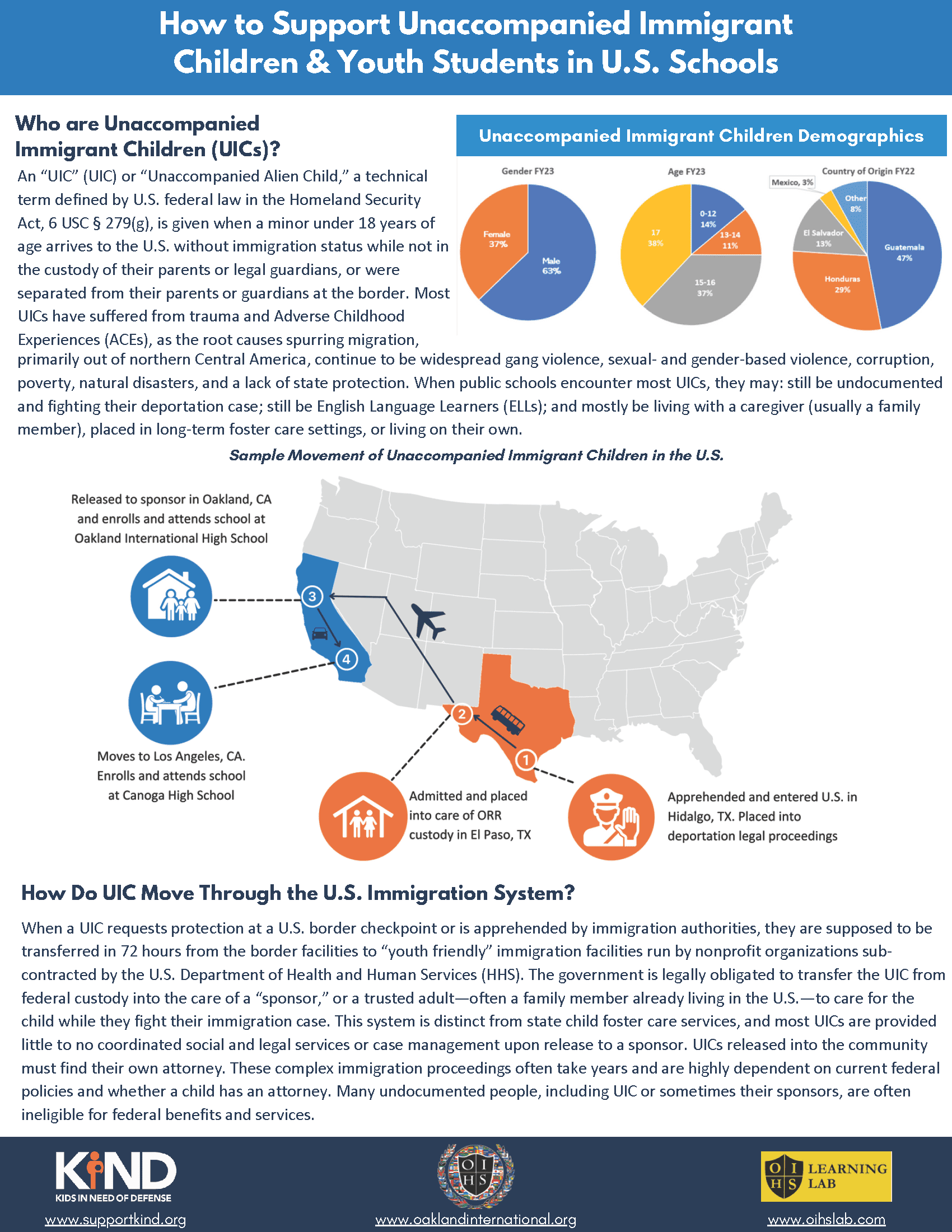 An “UIC” Unaccompanied Immigrant Child or “Unaccompanied Alien Child” is a term defined by U.S. federal law in the Homeland Security Act, 6 USC § 279(g). It refers to a minor under 18 years of age who arrives in the U.S. without immigration status and is not in the custody of their parents or legal guardians, or who has been separated from their parents or guardians at the border. Many UICs have experienced trauma and Adverse Childhood Experiences (ACEs) due to the root causes of migration, primarily originating from northern Central America. These causes include widespread gang violence, sexual- and gender-based violence, corruption, poverty, natural disasters, and a lack of state protection. When UICs enroll in public schools, they may still lack legal documentation and be fighting their deportation cases. They may also be English Language Learners (ELLs) and reside with a caregiver (often a family member), in long-term foster care settings, or live independently.
An “UIC” Unaccompanied Immigrant Child or “Unaccompanied Alien Child” is a term defined by U.S. federal law in the Homeland Security Act, 6 USC § 279(g). It refers to a minor under 18 years of age who arrives in the U.S. without immigration status and is not in the custody of their parents or legal guardians, or who has been separated from their parents or guardians at the border. Many UICs have experienced trauma and Adverse Childhood Experiences (ACEs) due to the root causes of migration, primarily originating from northern Central America. These causes include widespread gang violence, sexual- and gender-based violence, corruption, poverty, natural disasters, and a lack of state protection. When UICs enroll in public schools, they may still lack legal documentation and be fighting their deportation cases. They may also be English Language Learners (ELLs) and reside with a caregiver (often a family member), in long-term foster care settings, or live independently.
Learn how to support unaccompanied immigrant children and youth students in U.S. schools.
Download Fact Sheet
